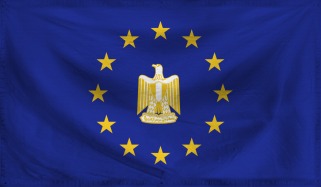Empire of Techkotal

Steampunk and magic is a fantasy RP, set in a world of alternative history, with magic and steampunk machines. We write the year 1914, the world is a bright and optimistic place, in which every nation strives for glory and progress naively believing in a better future against all signs of danger.
Rewrite your nations history or play as an IRL nation and change the future.
You can create an original nation, alt history nation or take a IRL nation, but they all have to fit the setting and not be absurdly overpowered.
You can write anything you want in your app, but it has to be properly explained. If it has a good explanation I'm willing to except it, but if it hasn't well don't expect it to go through. So take your time for the app.
Very Important! Behave well in this RP - All the NS rules have to be followed and no unfair behavior is allowed. No meta-gaming, flaming, trolling or god-modding. To ensure that IC conflicts are properly solved you can only state what you do and not how your enemy responds to it. In form of characters that mean no definite hits and in form of wars, that means that your nation can only respond to knowledge, which it obtained in the IC and has been made clear, that you could also get the information.
Very Important! I'm the OP and I decide what is plausible and what isn't. The same goes for OP stuff.
- Code: Select all
[[Please remove all double brackets from the app before posting it, including this one]]
Full Nation Name :
Territorial Core : [[The territory that your nation actually controls]]
Capital City : [[Its IRL location and name]]
Population :
Government Type : [[Monarchy, Republic, etc.]]
Head of State : [[The highest-ranking individual in the nation ]]
Head of Government : [[If different, the highest-ranking individual who actually runs the nation ]]
Government Description :
Majority/State Religion : [[It does not have to be IRL religion, OPTIONAL]]
Religious Description : [[OPTIONAL]]
Magic system : [[It doesn't have to be mages]]
Magic system Description : [[As detailed as needed and no OP stuff]]
Major Production :
Economic Description :
Development: [[Modern, Semi-Industrialized, or Primitive]]
Development Description : [[Explain further why your nation is in one of the above categories]]
Army Description : [[Describe your nation's army in as much detail as you can]]
Army Weakness :
Naval Description : [[Describe your nation's navy in as much detail as you can]]
Naval Weakness :
Further Military Description : [[OPTIONAL]]
National Goals : [[What are the main objectives of your nation?]]
National Issues : [[What needs to be fixed in order for your nation to achieve its true potential?]]
National Figures of Interest : [[OPTIONAL]] [[Are there any important historical figures that we need to know about?]]
National Ambition/Aspirations : [[OPTIONAL]] [[Not really set objectives, but rather the big picture that your nation is drawing towards]]
History : [[Can be in paragraph or bulletpoint timeline.]]
#Nations of Steam and magic (Do not delete this, it is used to keep track of the apps)
- Code: Select all
[align=middle][size=140]Reservation[/size][/align]
Nation Name:
Territory:
#Nations of Steam and Magic (Do not delete this, it is used to keep track of the apps)
*Note: Reservations will last for one week. The OP board reserves the right to be subjective in regards to accepting and removing reservations.

















